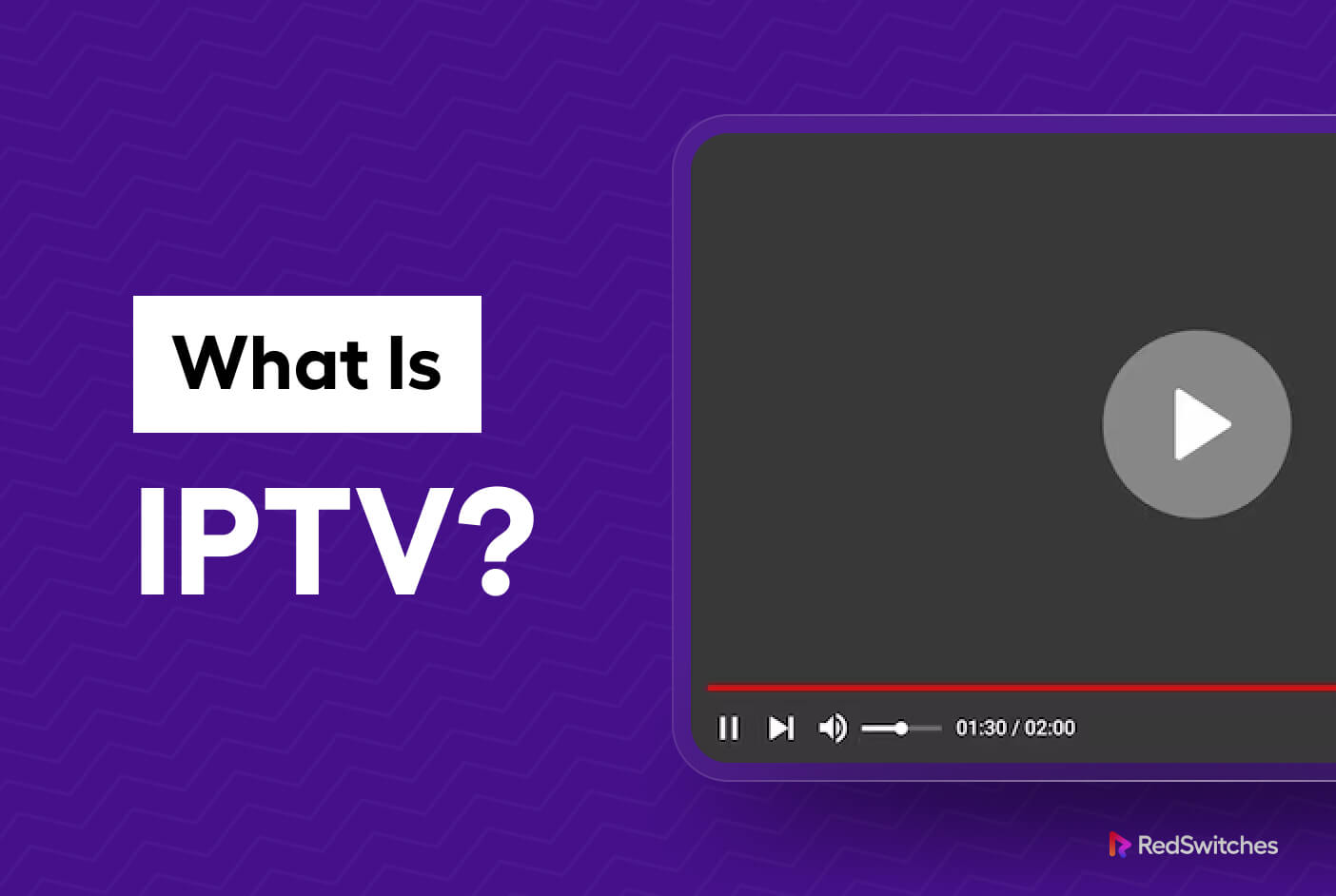Key Attributes to Search For in an IPTV Solution
Key Attributes to Search For in an IPTV Solution
Blog Article
IPTV Explained: Why It's Transforming the Method We See TV
The emergence of Internet Method Television (IPTV) symbolizes an essential change in exactly how audiences involve with content. By leveraging web connection, IPTV transcends traditional broadcasting constraints, using visitors a personalized and dynamic media experience. This technology not only offers access to a wealth of programs on-demand but likewise presents interactive functions that cater to modern watching preferences. As we discover the intricacies of IPTV, it ends up being evident that this advancement is not simply a fad; it presents substantial effects for the future of television usage and the landscape of electronic entertainment.
What Is IPTV?
IPTV, or Net Protocol Television, is a method of delivering television content online as opposed to through conventional satellite or cord formats. This ingenious approach uses net protocol networks to transmit video data, allowing audiences to access a vast array of shows straight via their internet connection. Unlike standard broadcasting, which relies upon radio waves or cord infrastructure, IPTV enables the streaming of content in a much more adaptable and user-centric way.
Among the key benefits of IPTV is its capability to give on-demand access to a huge collection of programs, films, and live programs. Clients can enjoy tailored viewing experiences, consisting of the option to stop briefly, rewind, or record content. Furthermore, IPTV solutions usually integrate interactive attributes, such as video clip as needed, catch-up tv, and the capability to gain access to multiple devices at the same time.

How IPTV Functions

The process starts with content gathering, where various television networks and programs are compiled onto a central server. From this server, the content is inscribed right into digital layouts suitable for streaming. When an individual selects a program, the IPTV solution retrieves the suitable information packages from the server and sends them to the customer's device.
IPTV normally works via wise tvs or set-top boxes, which translate the incoming information and provide the video clip for checking out. The technology makes use of flexible bitrate streaming to optimize video clip high quality based upon the user's net speed, ensuring a smooth viewing experience. Additionally, IPTV often includes interactive functions such as access, rewind, and time out to a virtual library, enhancing customer engagement. In general, IPTV stands for an innovative assimilation of technology that changes typical tv watching into a much more vibrant and customized experience.
Benefits of IPTV
As audiences increasingly seek versatility and modification in their entertainment selections, IPTV offers a series of benefits that accommodate these demands. One of one of the most significant advantages is the capacity to access content on various devices, consisting of smartphones, tablet computers, wise TVs, and computers - Iptv. This multi-device compatibility permits individuals to enjoy their favored shows and movies anytime, anywhere, improving their watching experience
Furthermore, IPTV supplies a comprehensive collection of on-demand web content, making it possible for customers to pick what to view, when to view it, and just how to enjoy it. This contrasts with standard broadcasting approaches, where visitors are typically constricted by fixed timetables. Additionally, IPTV solutions frequently offer customization attributes, such as tailored referrals based on viewing habits, allowing individuals to uncover brand-new web content fit to their choices.
Furthermore, IPTV commonly includes innovative anchor features like cloud DVR capacities, making it possible for individuals to tape and keep programs for later watching. Boosted interactivity, such as the ability to stop briefly, rewind, or fast-forward material, more improves the checking out experience. Iptv. Jointly, these benefits setting IPTV as a compelling choice to conventional tv, satisfying the evolving expectations of today's target markets
Contrast With Typical Television
Typical tv and IPTV present unique watching experiences, each satisfying various audience choices. Conventional television relies upon satellite, cable television, or terrestrial signals, supplying a repaired routine for broadcasting. Audiences are often bound to particular time ports to enjoy their favorite shows, which can be inconvenient in today's fast-paced environment.
On the other hand, IPTV provides content using the net, permitting users to stream shows and motion pictures on-demand. This flexibility makes it possible for audiences to view web content at their comfort, removing the constraints of a predetermined timetable. Additionally, IPTV solutions frequently provide access to a wider array of channels and web content, consisting of worldwide programs and particular niche genres that standard cable bundles may not use.
Additionally, the interactivity of IPTV enhances customer engagement, permitting attributes such as record, pause, and rewind capabilities that conventional TV does not have. Individuals can likewise access great post to read extra content, consisting of detailed program guides and customer rankings, enhancing the general watching experience.
Ultimately, while traditional tv stays a staple for several audiences, IPTV's flexibility and wealth of content make it a significantly prominent alternative, attracting those seeking even more control over their seeing practices.
Future of IPTV
The future of IPTV shows up promising, driven by advancements in technology and shifting consumer preferences. As broadband framework remains to improve globally, IPTV services are positioned to supply higher-quality video material with very little buffering and boosted user experiences. This progression is complemented by the spreading of clever gadgets, making it possible for customers to gain access to IPTV content on smart devices, tablets, and smart TVs, thus enhancing benefit and flexibility.
In addition, the assimilation of man-made intelligence and device knowing into IPTV platforms is anticipated to reinvent content delivery. Individualized recommendations based upon watching practices will certainly improve individual engagement, making it much easier for subscribers to uncover appropriate material. Furthermore, the unification of enhanced fact (AR) and digital truth (VIRTUAL REALITY) modern technologies holds the potential to develop immersive viewing experiences that traditional tv can not match.
The increase of subscription-based versions and ad-supported streaming services indicates a change in exactly how customers want to spend for material, additionally fueling IPTV's growth. As more customers look for adaptability and personalization in their seeing behaviors, IPTV is most likely to become a leading pressure in the enjoyment landscape, improving exactly how material is generated, distributed, and eaten in the coming years.
Final Thought
Finally, IPTV stands for a transformative improvement in tv consumption, supplying audiences unmatched flexibility and control over their watching experiences. Its ability for on-demand accessibility, tailored content, and interactive attributes differentiates it from typical broadcasting methods. As modern technology remains to evolve, the possibility for IPTV to more influence media consumption patterns and improve the enjoyment landscape remains considerable. This shift emphasizes the advice importance of adjusting to emerging modern technologies in an increasingly electronic globe.
The development of Web Protocol Tv (IPTV) represents a pivotal change in how audiences engage with web content.IPTV, or Web Protocol Tv, is a method of providing tv content over the web instead than through typical satellite or wire styles.Utilizing a network of net methods, IPTV supplies television web content through a collection of distinct processes. Furthermore, IPTV solutions often use personalization attributes, such as tailored referrals based on seeing routines, enabling individuals to uncover brand-new content suited to their preferences.
In addition, IPTV services commonly give access to a more comprehensive selection of networks and content, including international programs and niche genres that typical wire bundles might not use.
Report this page